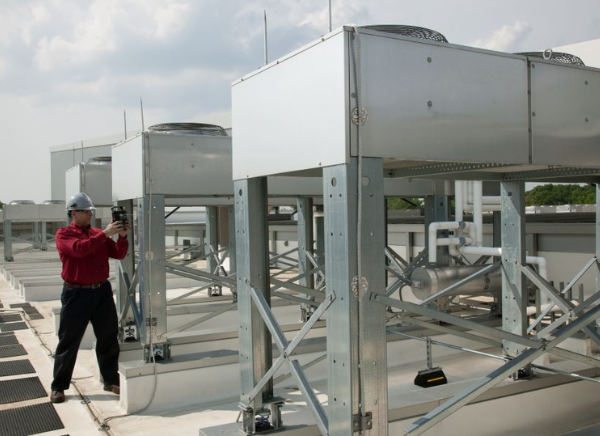
As the summer season begins in the northern hemisphere, severe heatwaves have already struck various regions, including the U.S., Mexico, Canada, Europe, and Asia. These extreme weather events have caused wildfires, air quality alerts, power outages, and heat records being broken. To address the challenges faced by data centre operators during such extreme heat, Vertiv (NYSE: VRT), a global provider of critical digital infrastructure and continuity solutions, has issued updated guidance.
The impact of climate change and the current El Niño weather pattern have made the past eight years the hottest on record, with 2023 expected to witness record-breaking temperatures. These soaring outdoor temperatures pose significant challenges for data centre operators who already grapple with heat management within their facilities. Vertiv recommends several steps that organizations can take to mitigate the risks associated with extreme heat:
1. Clean or Replace Air Filters: Data centre operators should clean or change air filters in their thermal management and HVAC systems regularly. These filters protect sensitive electronics from airborne particulates, including smoke from distant wildfires.
2. Accelerate Planned Maintenance and Service: Extreme heat and poor air quality put additional strain on data centre infrastructure. Proactive maintenance, such as cleaning condenser coils and maintaining refrigerant charge levels, can help prevent unexpected failures during power outages and demand surges.
3. Utilize Efficiency Tools: Modern UPS systems often feature high-efficiency eco-modes that can reduce power consumption from the grid. By reducing demand during heatwaves and peak times, data centres can ensure uninterrupted service.
4. Leverage Alternative Energy Sources: Data centres with access to viable alternative energy should utilize off-grid power sources like solar arrays, wind farms, and lithium-ion batteries for peak shifting or shaving. Avoid using generators during heatwaves due to their higher greenhouse gas emissions.
John Niemann, Senior Vice President for the Global Thermal Management Business at Vertiv, emphasized the need for organizations to proactively prepare for the strains on their power and cooling systems during extreme heatwaves. Collaborating with electricity providers to manage demand is also crucial.
Flora Cavinato, Global Service Portfolio Director, highlighted the impact of record-setting heat on data centres in Europe. Prioritizing thermal redundancy and partnering with service providers can ensure data centre availability during such extreme conditions.
The recommendations from Vertiv supplement previous guidance, which includes running multiple cooling units, exploring different cooling systems suitable for high-temperature environments, and using predictive modeling for thermal impacts.
For more information on data centre power and cooling or business continuity and data centre preventive maintenance during extreme heat events, visit Vertiv.com.
